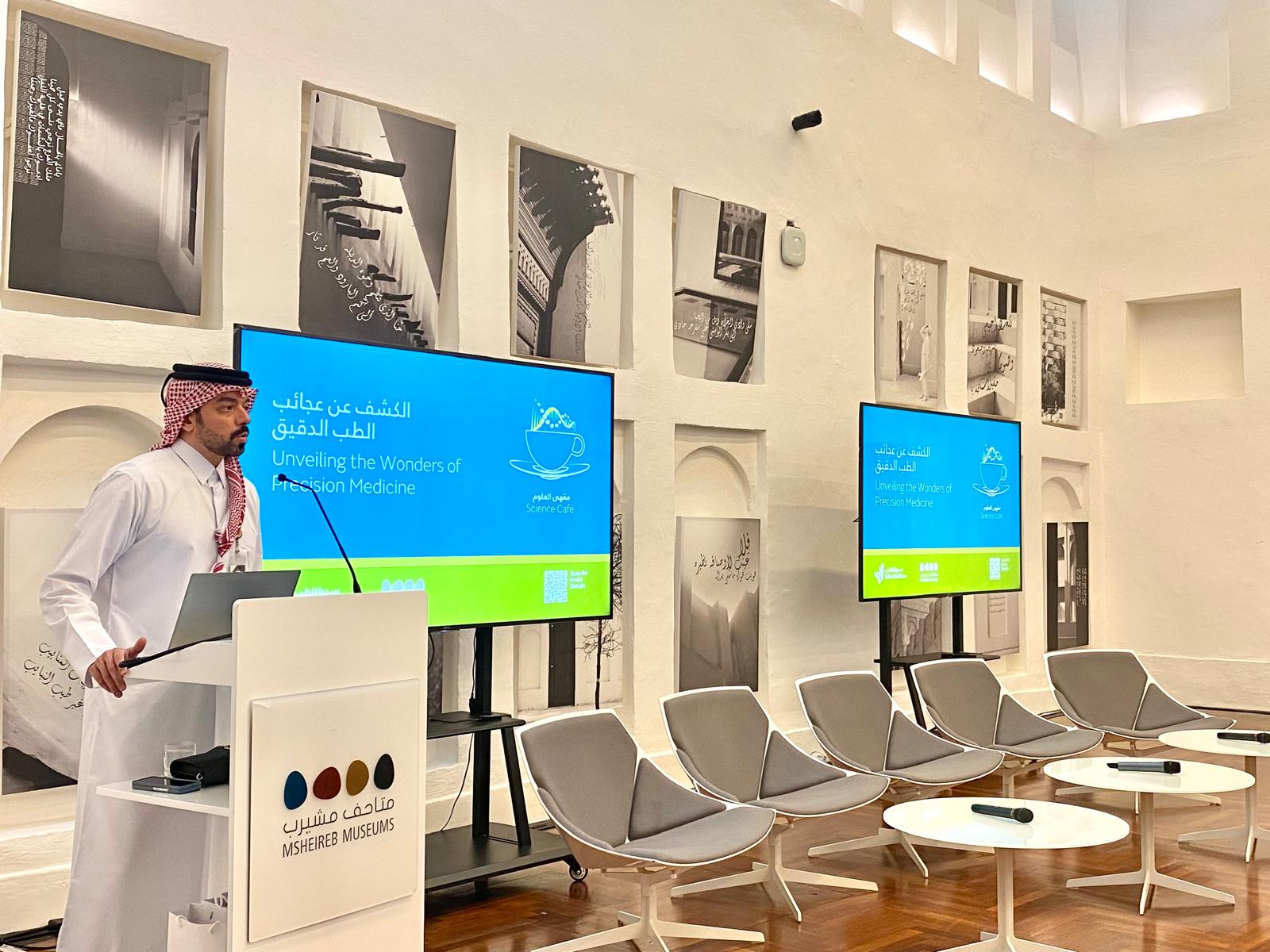The Science Cafe series in its fifth edition continues to serve as a bridge between science and the public, fostering open dialogue about the challenges and opportunities in modern healthcare.
The Science Cafe fifth edition, hosted by Msheireb Museums in partnership with Sidra Medicine, has presented the groundbreaking field of Precision Medicine and its potential to reshape the future of healthcare in Qatar.
Held at Bin Jelmoud House on October 14, the event brought together medical experts, researchers, and community members to discuss the strides being made in the field, especially regarding childhood cancer and genetic diseases.
Opening the event, Mr. Abdulla Al Naama, General Manager of Msheireb Museums, emphasised the significance of community engagement in promoting scientific understanding.
“We established this forum to connect with the public, understand their needs, and create a healthier future for the coming generations,” he said.
Dr. Khalid Fakhroo, who leads Sidra Medicine’s Precision Medicine Program, provided a detailed overview of the advancements in genomics and their implications for healthcare.
He highlighted that while the sequencing of the first human genome was completed in 2003 and cost about a billion dollars, today, entire genomes can be sequenced in just days for a fraction of that cost, at around $300.
“This technological revolution has opened doors for personalised medicine, making it more accessible for researchers and clinicians alike,” Dr. Fakhroo explained.
One of the discussions of the evening centered on childhood obesity, with Dr. Khalid Hussain sharing insights from his clinic.
“We’ve identified 300 children under five with severe obesity, yet only a small fraction of these cases can be traced to genetic causes,” he noted.
This revelation points to the possibility that the genetic landscape in Qatar may differ from other regions, sparking further research into local genetic factors.
The discussions highlighted how Precision Medicine is not yet fully integrated into clinical practice in Qatar, though its application is on the horizon.
Dr. Hussain remarked: “It’s only a matter of time before we start using these genomic insights in routine care, and we need to build the infrastructure to support this transition.”
‘Journey to the Heart of Life: DNA’
A key part of the event was the accompanying exhibition, titled ‘Journey to the Heart of Life: DNA’, which offered attendees interactive experiences to deepen their understanding of genomics.
Dr. Said Ismail emphasised the need for continued research to unlock the full potential of genomic data.
“We know so little about over 50% of our genome,” he said. “Understanding which mutations cause diseases remains a challenge, but with ongoing research, we hope to uncover new therapeutic targets.” He added.
Science Cafe will present ‘The Art of Healing’ on December 9, which will explore new topics in Precision Medicine.







